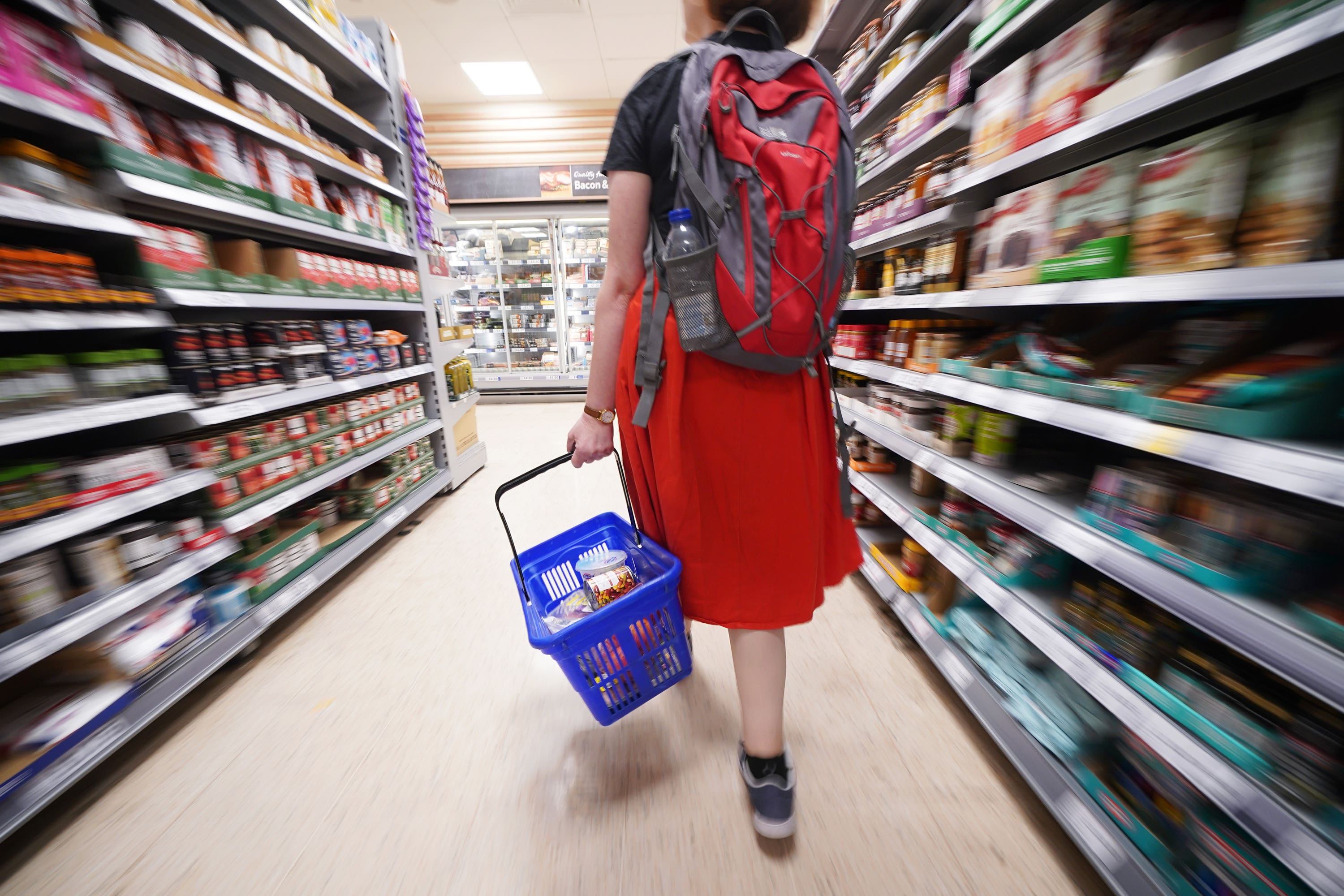Food inflation now lower than at any time since 2021, figures show
Food inflation is now lower than at any point since December 2021, helped by falling prices for key products such as butter and coffee.

Your support helps us to tell the story
From reproductive rights to climate change to Big Tech, The Independent is on the ground when the story is developing. Whether it's investigating the financials of Elon Musk's pro-Trump PAC or producing our latest documentary, 'The A Word', which shines a light on the American women fighting for reproductive rights, we know how important it is to parse out the facts from the messaging.
At such a critical moment in US history, we need reporters on the ground. Your donation allows us to keep sending journalists to speak to both sides of the story.
The Independent is trusted by Americans across the entire political spectrum. And unlike many other quality news outlets, we choose not to lock Americans out of our reporting and analysis with paywalls. We believe quality journalism should be available to everyone, paid for by those who can afford it.
Your support makes all the difference.Food inflation is now lower than at any time since 2021, according to new figures.
Food prices were 2.5% higher than a year ago in June, down from 3.2% in May – well below the three-month average rate of 3% and the fourteenth consecutive slowing of inflation, according to the British Retail Consortium (BRC)-NielsenIQ Shop Price Index.
Food inflation is now lower than at any point since December 2021, helped by falling prices for key products such as butter and coffee.
Whoever wins Thursday’s election will benefit from the work of retailers to cut their costs and prices, easing the cost of living for millions of households
Fresh food inflation slowed further to 1.5%, down from 2% in May.
Overall shop price inflation eased to 0.2% in June, down from 0.6% in May, and its lowest point since October 2021.
Non-food prices went deeper into deflation, at 1% cheaper – from 0.8% in May – as retailers tried to drive sales by discounting.
BRC chief executive Helen Dickinson said: “During the height of the cost of living crisis, retailers invested heavily in improving their operations and supply chains to compensate for the impact of global shocks on input costs.
“This is clearly paying off, with shop prices having risen just 0.2% over the past 12 months.
“Whoever wins Thursday’s election will benefit from the work of retailers to cut their costs and prices, easing the cost of living for millions of households.”
Mike Watkins, head of retailer and business insight at NielsenIQ, said: “Shop price inflation is still slowing and this will be of help to shoppers as they plan their household budgets for essential goods and services.
“And with uncertainty around discretionary spending, we expect the intense competition across the marketplace to keep price increases as low as possible this summer.”